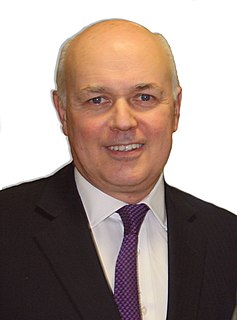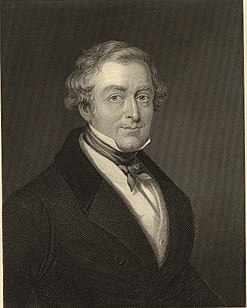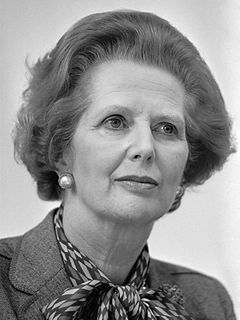Election campaign
Sir Alec Douglas-Home triggered the election on 23 July 1965, by resigning at a full meeting of the 1922 Committee in committee room 14. [1]
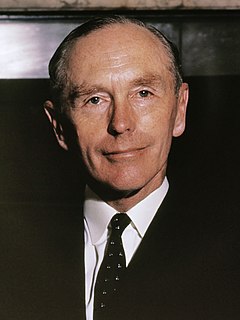
Alexander Frederick Douglas-Home, Baron Home of the Hirsel, was a British Conservative politician who served as Prime Minister of the United Kingdom from October 1963 to October 1964. He was the last Prime Minister to hold office while a member of the House of Lords, before renouncing his peerage and taking up a seat in the House of Commons for the remainder of his premiership. His reputation, however, rests more on his two spells as Britain's foreign minister than on his brief premiership.
The 1922 Committee, formally known as the Conservative Private Members' Committee, is the parliamentary group of the Conservative Party in the UK House of Commons. The committee, consisting of all Conservative backbencher MPs, meets weekly while parliament is in session and provides a way for backbenchers to co-ordinate and discuss their views independently of frontbenchers. Its executive membership and officers are by consensus limited to backbench MPs, although since 2010 frontbench Conservative MPs have an open invitation to attend meetings. The committee can also play an important role in choosing the party leader. The group was formed in 1923 but became important after 1940. It is generally closely related to the leadership and under the control of party whips.
It was widely assumed that both Edward Heath, Shadow Chancellor, and Reginald Maudling, Shadow Foreign Secretary, would stand. Members of the "magic circle" of old Etonians chose not to contend the election, with widespread agreement that a younger and modern face was needed to front the Conservative Party. [1]

Sir Edward Richard George Heath, often known as Ted Heath, was a British politician who served as Prime Minister of the United Kingdom from 1970 to 1974 and Leader of the Conservative Party from 1965 to 1975. Heath served 51 years as a Member of Parliament from 1950 to 2001. He was a strong supporter of the European Communities (EC), and after winning the decisive vote in the House of Commons by 336 to 244, he led the negotiations that culminated in Britain's entry into the EC on 1 January 1973. It was, says biographer John Campbell, "Heath's finest hour". Although he planned to be an innovator as Prime Minister, his government foundered on economic difficulties, including high inflation and major strikes. He became an embittered critic of Margaret Thatcher, who supplanted him as Conservative leader.

Reginald Maudling was a British politician who held several Cabinet posts, including Chancellor of the Exchequer. From 1955 until the late 1960s, he was spoken of as a prospective Conservative leader, and he was twice seriously considered for the post; he was Edward Heath's chief rival in 1965. He also held directorships in several British financial firms.
Another potential "modernizing" candidate, Iain Macleod, ruled himself out immediately. He might have received 40-45 votes had he stood, but he instead endorsed Heath.

Iain Norman Macleod was a British Conservative Party politician and government minister.
Other names that were seen as possible contenders were Quintin Hogg, Peter Thorneycroft and Enoch Powell, Shadow Transport Minister (who eventually did stand). [3] Some were angered by Powell's candidature, as a complication in an otherwise clear contest.

Quintin McGarel Hogg, Baron Hailsham of St Marylebone, was a British barrister and Conservative politician. He was known as The Viscount Hailsham between 1950 and 1963, when he disclaimed the peerage.
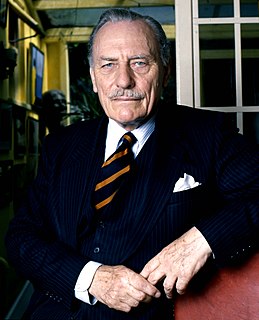
John Enoch Powell was a British politician, classical scholar, author, linguist, soldier, philologist and poet. He served as a Conservative Member of Parliament (1950–1974), then Ulster Unionist Party (UUP) MP (1974–1987), and was Minister of Health (1960–1963).
Maudling, the most experienced and publicly known of the candidates, was generally considered to be the favourite. Heath's prospects were seen as either tie-ing or preventing Maudling from reaching the 173 votes needed to win outright. [4] It was also thought that Powell would take support away from Heath whose backers predominantly came from northern England and industrial cities (such as Birmingham and Wolverhampton), as opposed to Maudling's geographically wider support. Heath, however, fought a more effective leadership campaign, organised by his young lieutenant Peter Walker, and by the eve of the election, the Heath camp believed they had a clear lead. [5] Maudling, by contrast, fought a lacklustre campaign. He assumed, for example, that William Whitelaw would vote for him, but he voted for Heath.
The election was managed by the Chairman of the 1922 Committee, Sir William Anstruther-Gray. The result of the ballot on 27 July was as follows:
The rules in place required the victor to have both an absolute majority (which Heath had narrowly achieved) and, in the first ballot, at least a 15% lead of votes actually cast (not counting abstaining members - this would be changed in the mid 1970s review of the rules). As Heath had not achieved the latter hurdle, the election could therefore have gone to further rounds. However Maudling conceded defeat and Heath was duly declared leader.
Powell had not expected to win, but said he had "left his visiting card", i.e. publicly demonstrated himself to be a potential future leader. However, the 1965 leadership contest showed Powell's lack of support in the Parliamentary Party, and thereafter Heath felt able to call his bluff. In 1968 he was sacked from the Conservative front bench for the "Rivers of Blood speech", although he held great sway over public opinion in the following years. However, by the next time the leadership fell vacant in 1975 he had become an Ulster Unionist and so was no longer eligible to stand.













